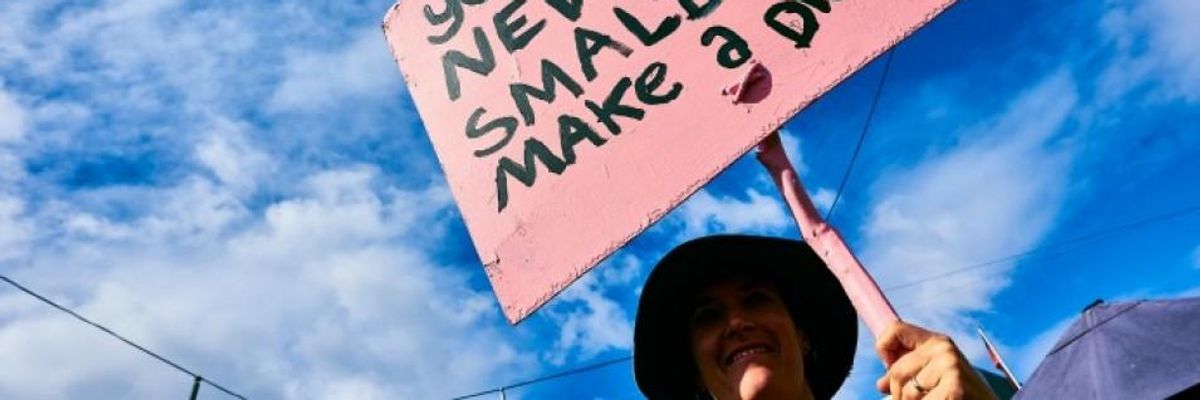The virus spreading Covid-19 worldwide jumped from non-human animals to people -- as have most new diseases, from AIDS to SARS to Ebola. We may not know the precise origin of this particular coronavirus, but we understand the factors behind its spread to humans. And we've seen the devastation a tiny, mysterious, rapidly spreading virus can wreak on people in a globalized system.
This pandemic could be a trial run for how we respond to the almost-inevitable next pandemic. Or it could be the wake-up call that finally compels us to employ the many available and developing solutions to resolve this and other related emergencies, including the climate and biodiversity crises, as well as the severe inequality crisis.
Recent research confirms what we've known for some time: Destruction of natural spaces, intensification of agriculture and livestock production and the unsustainable wildlife trade are driving the spread of diseases from non-human animals to people--known as "zoonotic" transmission.
According to a WWF International report, "We do not know where the next new disease will emerge or how many people it will affect, but the risk of a new zoonotic disease emerging in the future is higher than ever."
The report is just the latest warning from health and biodiversity experts worldwide. WWF International director Marco Lambertini, UN Convention on Biological Diversity executive secretary Elizabeth Maruma Mrema and World Health Organization environment department director Maria Neira wrote in the Guardian that these new diseases "all illustrate that our destructive behaviour towards nature is endangering our own health--a stark reality we've been collectively ignoring for decades."
We're also endangering our health with pollution, climate change and biodiversity loss. This lack of respect for all that we're part of extends to a lack of respect for each other. Now many people have had enough. Those who would destroy the things that keep us alive and healthy for the sake of short-term profit and power, and who would oppress others and divide us against each other, are a minority, and they're being called out.
We're at a turning point. We can go back to a "normal" existence beset by pollution, climate chaos, disease, racism and massive inequality, or we can take this opportunity to reset. It's time for those who have enjoyed the privileges bestowed by skin colour and background to question their own inherent biases, to be part of the solution--or get out of the way. It's time to listen to the experts about health, climate and biodiversity, and also to those our societies' have marginalized and mistreated--and who are most affected by pollution, climate change and inequality. We all need to understand what Indigenous people and people of colour must endure in a "multicultural" country like Canada.
Marginalized people face greater risks from climate change and environmental damage, in part because industrial development is often situated near remote, vulnerable communities, and because they often don't have the resources to protect themselves. Research also shows Covid-19 is especially hard on Black, Indigenous and other people of colour, as well as the poor.
The world slowed during the pandemic. Many of us changed the way we work--and this far into the 21st century, it's past time to move beyond 1950s working hours and conditions. People have also been standing up for what's right, for equality.
Changing our ways is a challenge, but as we've seen with the pandemic response, the barriers are more political than technological or rational. We know why pathogens--from Lyme disease to Covid-19--are moving from the wild to human societies. We know why our planet is heating toward levels beyond which human health and survival can be sustained. We also know many of the factors behind inequality.
All of these crises are grounded in outdated systems that prioritize profits and economic measures over human health, well-being and survival. We have no end of solutions to these crises, but ultimately, systemic change is required to overcome the short-sighted greed that has sent us speeding down this path.
The climate and biodiversity crises didn't go away with the pandemic. But the health crisis has further exposed the flaws in our outdated systems. People are calling for change. It's time.

